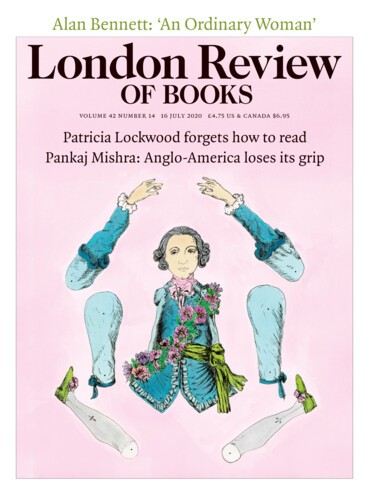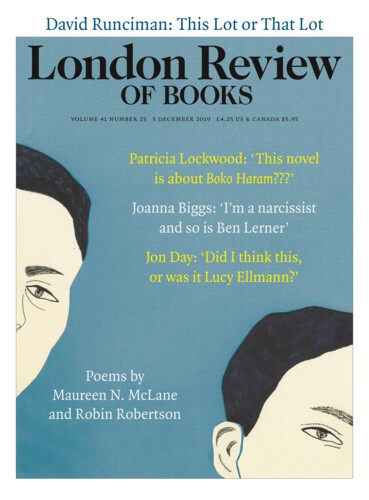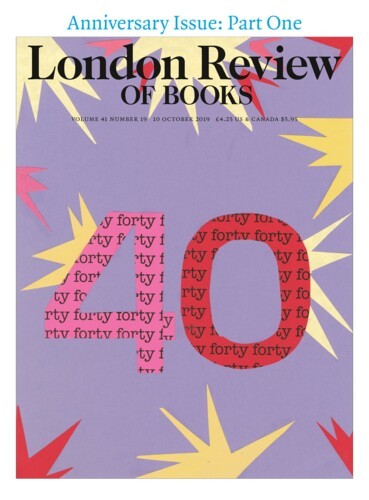Diary: America is a baby
Patricia Lockwood, 3 December 2020
On Election Day, as soon as the polls closed, I had to watch the three-hour-long 1972 movie musical 1776. You almost certainly haven’t seen it, so I’ll summarise it for you. The year is – well, you know that part – and the flies of patriotism are buzzing in the room in colonial Philadelphia where the Second Continental Congress is refusing to debate a proposal for...





